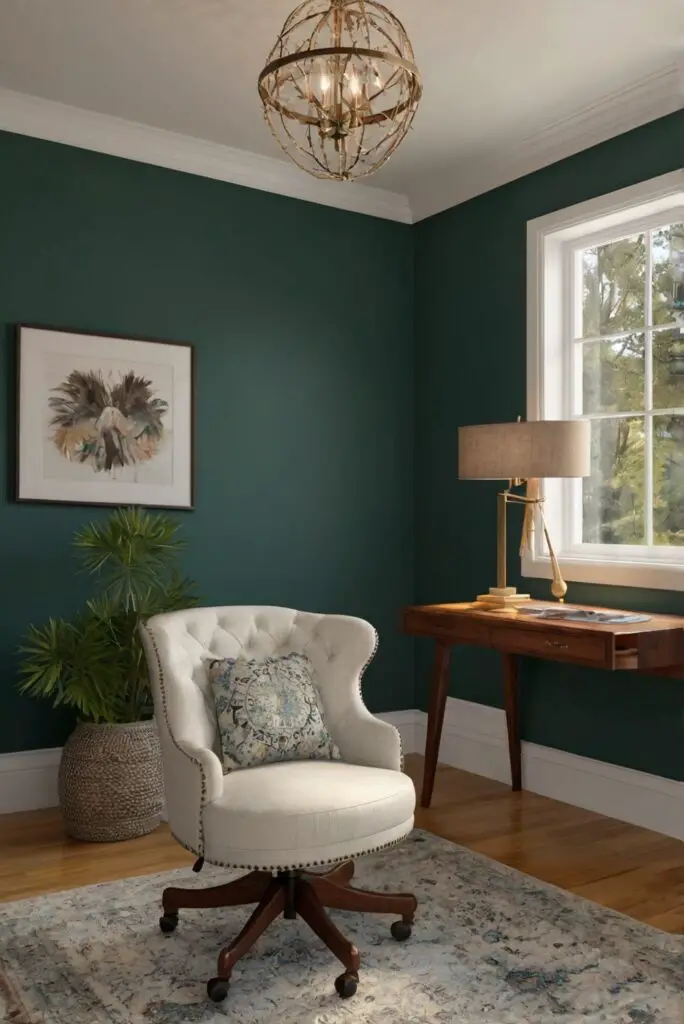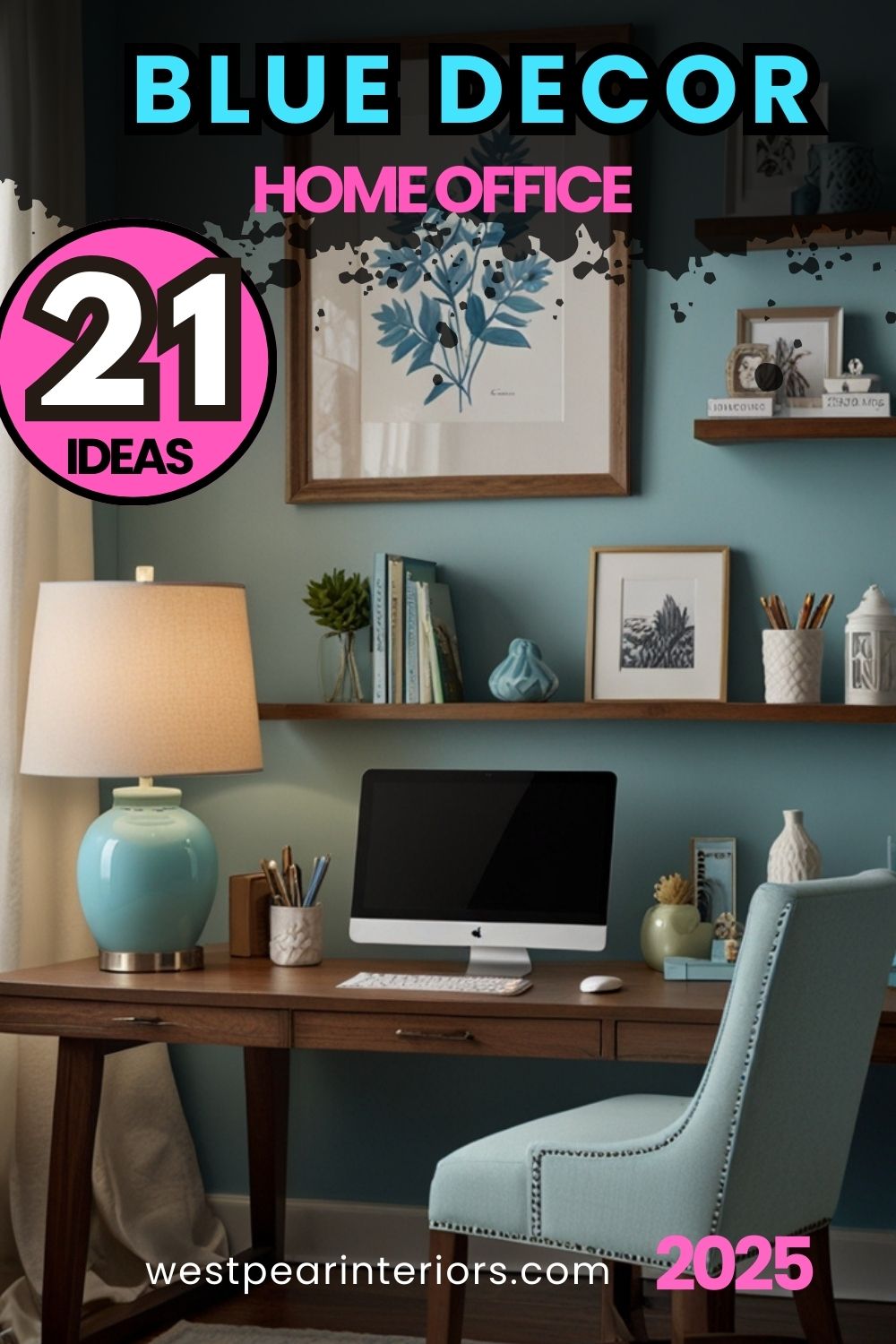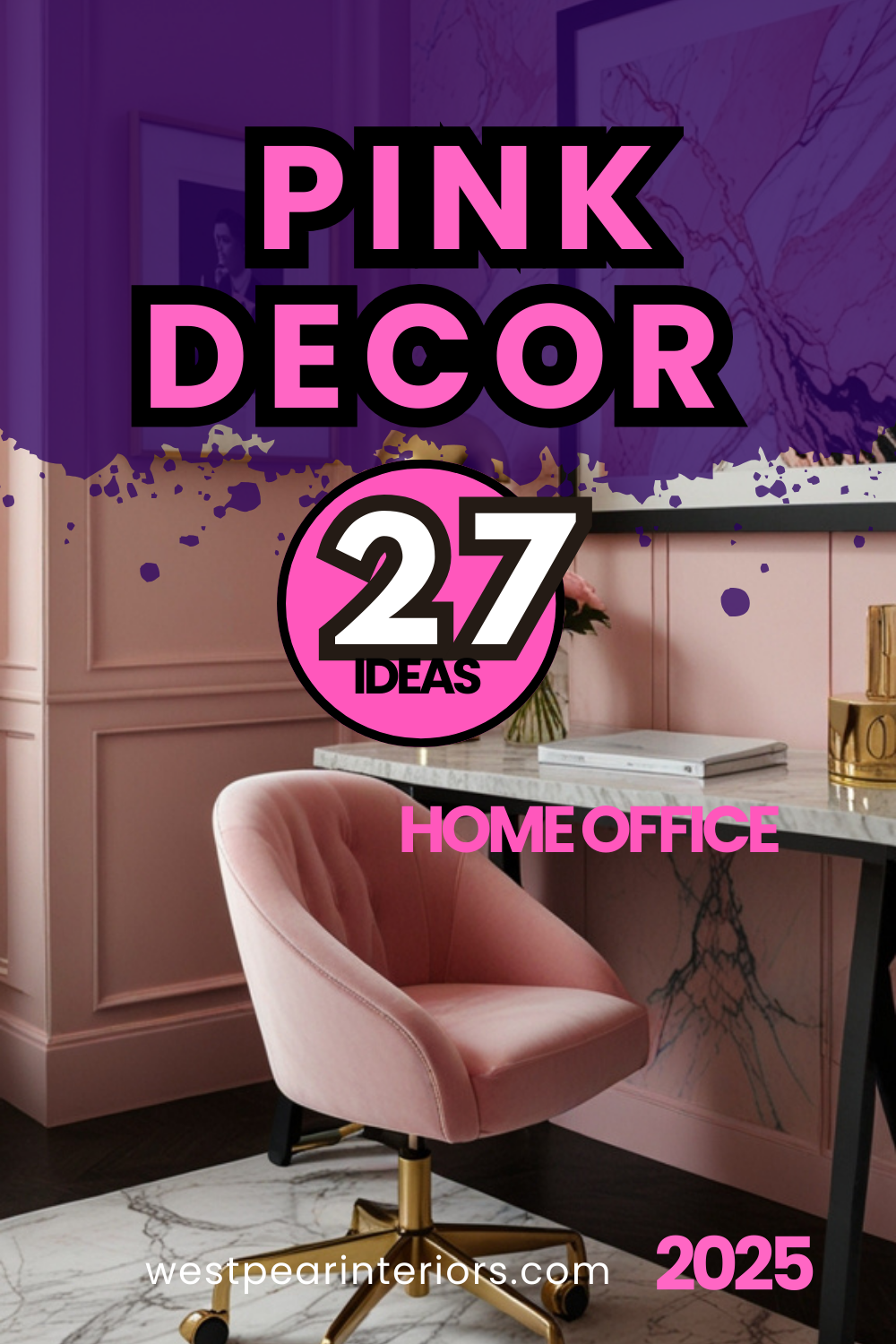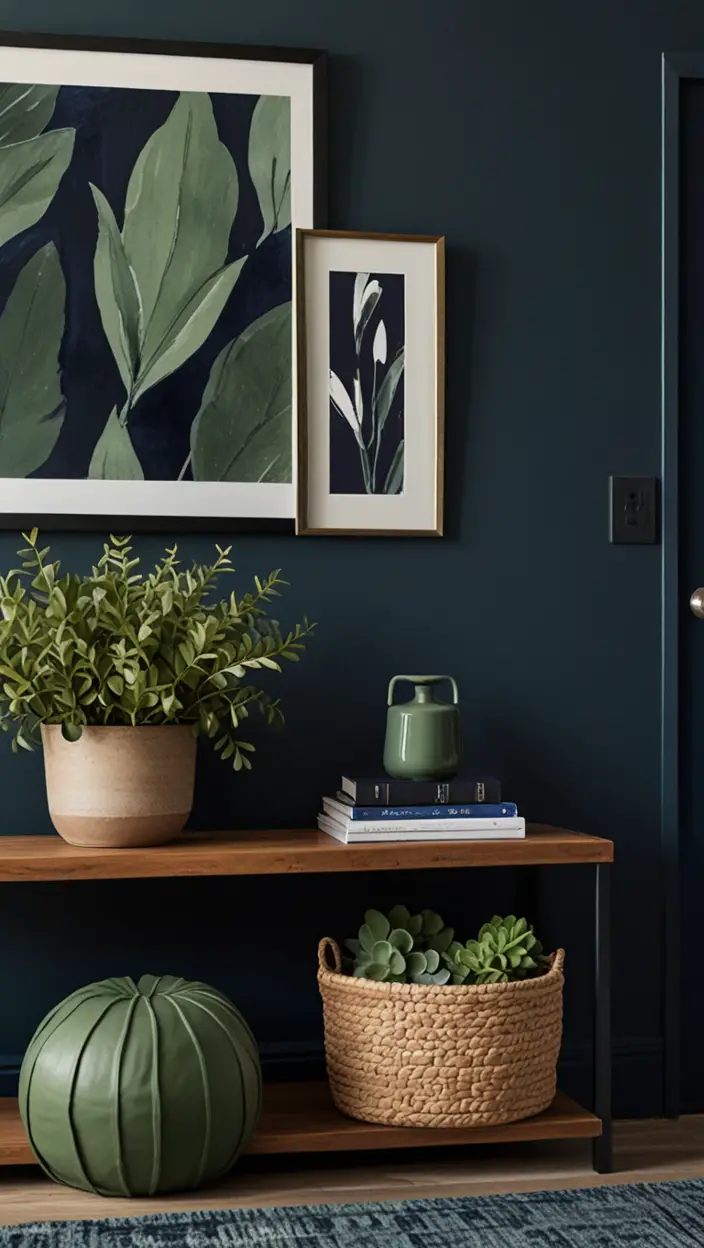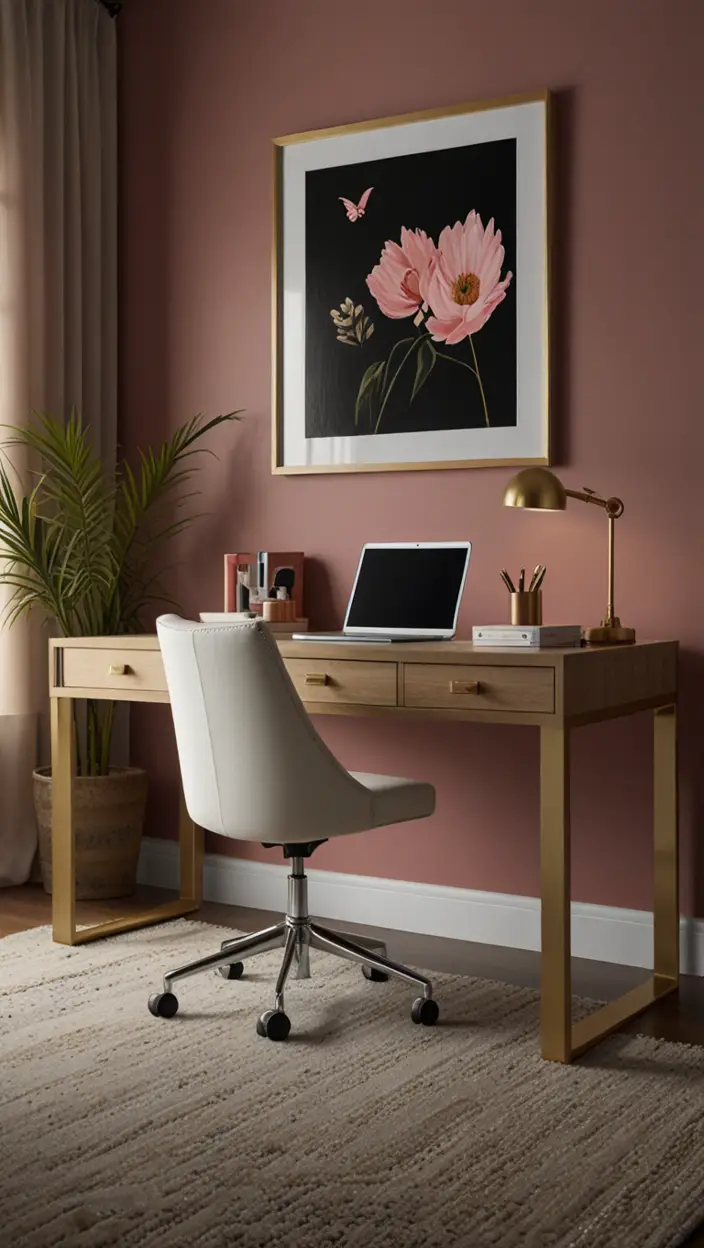Looking to add a pop of color to your home office? Discover the top accent colors to elevate your workspace in style.
In my home office, I like to use calming and inspiring accent colors such as soft blue, sage green, and dusty pink. These colors help create a serene and productive atmosphere that stimulates creativity and focus. When selecting accent colors for your home office, consider the overall color scheme of the room and choose hues that complement each other. It’s also essential to ensure that the colors you select match the furniture and decor in the space. Additionally, using a primer paint for walls before applying the accent color can help achieve a more professional and long-lasting finish. Remember to create a balanced and organized look by incorporating a mix of colors that work harmoniously together.
Accent colors play a vital role in adding personality, depth, and visual interest to a home office. When working with neutral tones as the base color palette, choosing the right accent colors can make a significant impact on the overall ambiance of the workspace. Here are some key points to consider:
My Lovely Spring Paint for 2025
Ready for a Spring Makeover? Explore the Freshest 2025 Paint Trends!
White Sage/Green SW Pistachio green Soft blue Honeysweet/Orange Pink Sugar Sage Tint BMAs an Amazon Associate, I may earn a commission from qualifying purchases at no extra cost to you.
Accent colors should complement the neutral tones of the home office to create a harmonious balance. Opt for accent colors that are in the same color family or have a complementary color relationship with the neutrals. For example, if your office walls are painted in a light gray, consider accent colors like navy blue, mustard yellow, or emerald green to add a pop of color without overpowering the space.
Mixing bold and subtle accent colors can create a dynamic and visually appealing environment in your home office. You can use bold accent colors sparingly to draw attention to specific areas or elements in the room, such as a statement wall, a piece of furniture, or decorative accessories. Subtle accent colors can be used to tie the different elements of the office together and create a cohesive look.
When choosing accent colors for your home office, take into account the existing furniture and decor items in the space. Consider the colors, textures, and patterns of your furniture pieces and select accent colors that complement or contrast with them effectively. For instance, if you have a wooden desk with warm undertones, you can add accent colors like burnt orange or rust red to enhance the natural beauty of the wood.
My fAV Spring DECOR for 2025
Discover Spring’s Best 2025 Decor Combinations – Perfect for Any Room!
Oversized Indoor Plants White Curved Sofas Rugs BOH Brown Cream Moroccan Hype Boho Rug Outdoor Patio Furniture Sets Topfinel Pillow CoversAs an Amazon Associate, I may earn a commission from qualifying purchases at no extra cost to you.
Using accent colors in a home office setting can help create a stimulating and inspiring work environment. Colors have the power to evoke emotions, influence moods, and boost productivity. By strategically incorporating accent colors that energize, motivate, or relax you, you can personalize your workspace and make it a place where you feel focused and creative.
Creating a cohesive color scheme for your home office with accent colors involves selecting a primary color and one or two accent colors to anchor the design scheme. Choose a dominant color for the walls or large furniture pieces and then use accent colors for smaller elements like throw pillows, rugs, curtains, and artwork. Limiting the color palette to a few key hues will ensure that the space feels cohesive and visually pleasing.
The impact of accent colors on productivity and mood in the home office environment should not be underestimated. Research has shown that certain colors can have a direct effect on cognitive function, concentration, and emotional well-being. For example, blue is often associated with calmness and focus, while yellow can promote creativity and optimism. Understanding the psychological effects of colors can help you choose the right accent colors to enhance your work performance and mood in the home office.
Incorporating accent colors into a small home office space requires a thoughtful approach to prevent visual overload. To avoid overwhelming the room, use accent colors strategically in specific areas or elements that you want to highlight. Consider painting an accent wall, adding colorful accessories like desk organizers or artwork, or introducing textiles in bold hues through curtains or upholstery. By keeping the rest of the space neutral and uncluttered, you can create a balanced and visually appealing home office design.
Choosing the right accent colors for your home office can transform the space into a vibrant, functional, and inspiring work environment. By understanding the role of accent colors, considering your existing decor, and harnessing the psychological effects of colors, you can create a personalized workspace that reflects your style and enhances your productivity.
When selecting accent colors for your home office, focus on creating a cohesive color scheme that complements the neutral tones of the space and enhances its overall aesthetic appeal. Consider the impact of colors on your mood and productivity, and use bold and subtle accent colors strategically to achieve the desired atmosphere. With the right combination of accent colors, you can transform your home office into a welcoming and inspiring workspace that motivates you to be productive and creative.
Key Takeaways:
– Choose accent colors that complement the neutral tones of your home office to create a harmonious balance.
– Mixing bold and subtle accent colors can create a dynamic and visually appealing environment in your workspace.
– Consider your existing furniture and decor items when selecting accent colors to ensure a cohesive look.
– Using accent colors can have a significant impact on productivity and mood in the home office environment.
– Create a cohesive color scheme by selecting a primary color and one or two accent colors to anchor the design scheme.
By following these guidelines, you can create a stylish and functional home office that reflects your personality and enhances your work experience.

